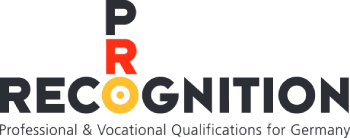
Moving to Germany: A Practical Welcome Guide for Skilled Professionals and Their Families
If you’re a skilled professional from India preparing for your new life in Germany, you’re not alone — and you’re not unprepared. Germany offers a structured and supportive environment to help newcomers integrate smoothly into everyday life. The Federal Ministry of the Interior’s guide, Welcome to Germany, offers a wealth of practical tips, especially for those arriving with family.
Here’s what you need to know — and do — in your first weeks in Germany.
First Things First: Registration and Residence
Upon arriving in Germany, one of the very first steps is to register your residence (Anmeldung) at the local Residents’ Registration Office (Einwohnermeldeamt). This must be done within two weeks of moving into a permanent home. You’ll receive a registration certificate (Meldebescheinigung), which is essential for almost everything — opening a bank account, applying for residence permits, or even signing up for utilities.
Search term tip: If you’re looking this up locally, try “Anmeldung + [your city]”.
Also, remember: if you arrived on a visa, you’ll likely need to convert it into a residence permit through your local Foreigners’ Authority (Ausländerbehörde). Schedule this appointment early — waiting times can be long in bigger cities.
Everyday Life: Settling In
Living in Germany can be a big cultural shift, but one that’s full of opportunity. The Welcome to Germany guide recommends getting to know the local systems early:
- Public transport is reliable and affordable, and many newcomers use it daily to commute. Look into monthly or job-related tickets.
- Waste separation is serious business. Make sure you understand how to sort household waste into paper, plastic, bio, and residual categories.
- Shopping hours can be a surprise — most supermarkets close by 8 PM and remain closed on Sundays, so plan ahead.
Many families also report that life here is safer, quieter, and more structured — especially helpful when raising children.

Understanding Bureaucracy (and Learning to Love It)
German bureaucracy can seem overwhelming at first, but it works well — once you understand the rules. For example:
- Health insurance is mandatory, and you must be insured either publicly (gesetzlich) or privately (privat) before you start working.
- If you have children, you can apply for child benefits (Kindergeld), even as a foreigner, once your residency is approved.
- A German bank account is crucial — not only for salary, but also for paying rent, health insurance, and setting up your mobile plan.
Paperwork takes time, and often needs original documents, so keep physical copies and translations of key documents (like birth and marriage certificates).
Integration Starts Early
From day one, integration is not just encouraged — it’s supported. Germany offers a lot of support in that regards. Integration courses (Integrationskurse) that combine language learning with civic education. Access to local Welcome Centers, which support new arrivals with housing, job advice, and legal orientation and are opening in more and more regions. Multilingual family services and intercultural daycare centers, which ease the transition for children. Joining local clubs (Vereine) — whether for sports, music, or community service — is a great way to make friends and practice German.
Language: Your Bridge to Belonging
One of the most important investments you can make is learning German. While English is common in international workplaces, German is essential for so many everyday moments like navigating bureaucracy, talking to your landlord, doctor, or child’s school or just in general feeling confident in everyday situations — from bakeries to town halls.
Look for language schools near you or explore government-supported courses through the Bundesamt für Migration und Flüchtlinge (BAMF).
For Families: Schools, Kindergartens, and Community Life

Families relocating from India will find many opportunities for their children:
- Kindergartens (Kitas) are available for preschoolers, often with structured play-based learning
- Schools are free and compulsory from age 6, and newcomers are supported through special language classes
- Parent cafés, cultural programs, and community centers often organize activities for international families
Many cities have Indian associations, temples, and grocery stores — you won’t lose your connection to home while building your new life.
Want to Read the Full Guide?
The full official guide Welcome to Germany – Information for Immigrants is available here as a free PDF.
Whether you’re starting a new job, enrolling your kids in school, or figuring out trash day — Germany is ready to welcome you. Willkommen!



